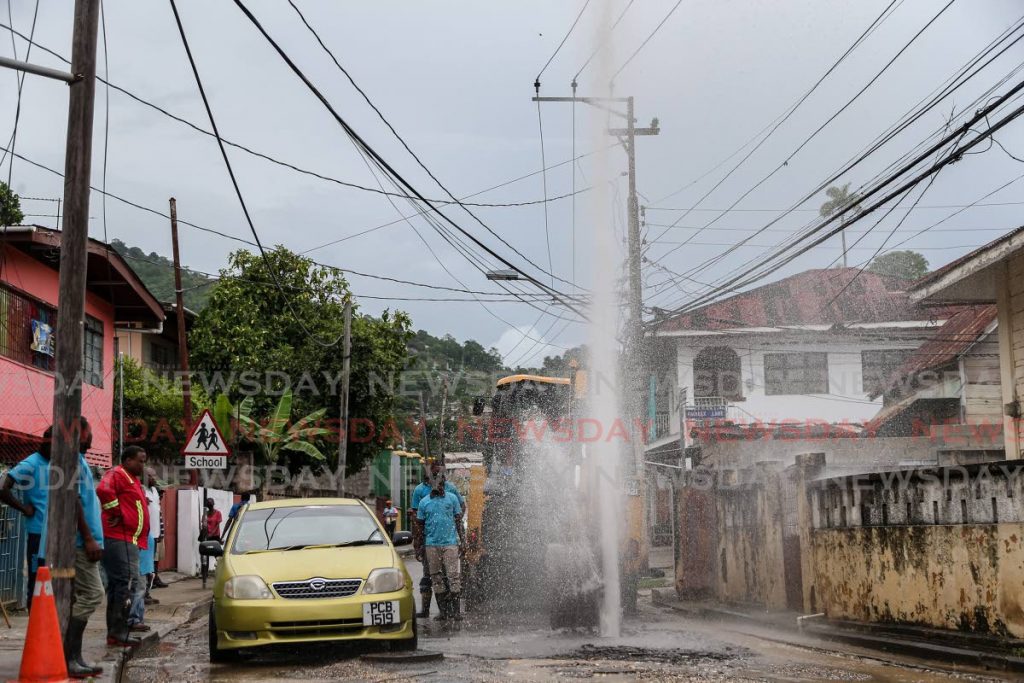When parts don't work, companies, governance stall

DIANA MAHABIR-WYATT
There is a growing group endeavouring to explain what has happened to employers and workers, trade unions and business organisations during the unprecedented events of 2020. I came across them (while the internet still worked) while researching the combined effects of climate change, the pandemic, and the recorded spread of narcissistic personality disorder on heads of state. I was wondering if any analysis taking these into account had been done on the future business potential in Caricom states.
Of course there has been none, although several economists have forecast severe water shortages and it does not require a PhD to notice the increase in daily temperature. The effect of climate change, the rise in temperatures is having on the lives of ordinary people, is self-evident.
Women are now being seen on the streets holding umbrellas against the intensity of the sun’s rays. People (not tourists, as we no longer have any) who would have smiled a few years ago at the sight of others of all genders wearing hats are now doing so themselves.
We must assume that Government in all its wisdom knows the consequences of rising temperatures on water supplies, and trust that dry-season water shortages will be assuaged as WASA’s mismanagement and poor governance is cured by the appointment of yet another new board of directors. How many has it been now in the last decade?
“Consistency,” as Oliver Wendell Holmes once said, “is the hobgoblin of little minds.” Our system of governance, including the change of state boards whenever ministers change, thinking that that alone will improve state-enterprise performance, is certainly consistent. It has been going on since Eric Williams’ time.
Foreign exchange is becoming more and more difficult to obtain, we read, although the grape and apple avalanche in local supermarkets belies this. We are told to eat more local food, to grow more, and, covid-trained as we have been over the past nine months, most of us are very willing to do so, even though the price of local oranges has put them out of range of my vitamin-C starved budget.
But when we try to support local fresh food, if the projected drought comes to pass, how will farmers water their crops to get them to market standards? Will WASA provide?
And how many of the valiant farming profession will continue their agricultural community-sustaining work when, night after night, common thieves wipe out the hard work whole families working together have put in over the preceding months?
System analysis tells us what, if we are observant, we should already have noticed, but didn’t. A system is a set of somehow related units that interact with each other. Your body is a system with subsystems that interact. Each one affects every other one. Like the old song Dry Bones, "the head bone is connected to the neck bone, the neck bone is connected to….” etc. The lungs affect the circulatory system, which affects the nervous system, which affects the cardiovascular system and so on. As covid19 has taught us, if you destroy one subsystem, you weaken and ultimately destroy them all.
Your family is another system. If you damage one member, that will affect the next, which will affect the third and so on. Those who work in the field of family therapy can attest to that. Domestic violence, or cancer, or addiction or criminal acts on the part of one, affects each and every one else.
In work groups, each member of the group forms a subsystem and when one member of the work group subsystem is dysfunctional, they co-vary, which means, again, that each one affects each of the others and a synergy takes place which changes the characteristic of the whole workplace. I have seen an organisation change from dysfunctional, dissatisfied and unmotivated to one which is convivial, efficient, problem-solving and motivated following the removal of just one person. It can be one manager or it can be one employee, a shop steward or a supervisor, a branch secretary or a safety officer. Often, all it takes is the removal of one.
Subsystems have to function for the good of the whole. If they don’t the system itself will fail. That is what synergy is. It is the result of all the energy generated by the subsystems working together for the good of the system. The whole is more than the sum of the parts, as you learned in physics class.
If the lungs function only for the sake of the lungs, or the kidneys only for the sake of the kidneys, oxygen will not get to the brain, only into and out of the lungs, and toxins will not be neutralised by the kidneys, and the body will die. If a parent works only for their own interests and support, the family will die or fall apart. If an accounts clerk works only to get cheques in and out of his office without trying to support other departments and, at times, to sacrifice for the good of the company, the organisation will die.
The same is true of a government, which is a system made up of many interacting subsystems. It will not work or thrive unless all the subsystems work together. It is a law of organisation as true here as it was in Singapore, a system with no natural resources, which 20 years ago was on a social and economic level equal to TT.
Singaporeans created a synergy where each subsystem supported each other, where state corruption was superseded by genuine nationalism. Progress in Singapore was not held back by outdated colonial public service commissions as we have been here. As we have stagnated and faltered, it continues to thrive. And Singaporeans have water in their taps.


Comments
"When parts don't work, companies, governance stall"